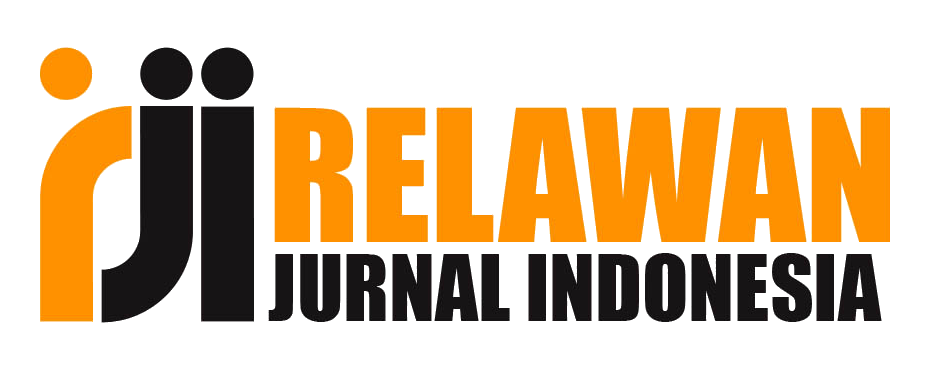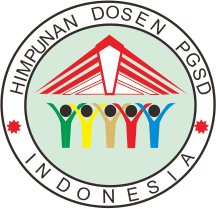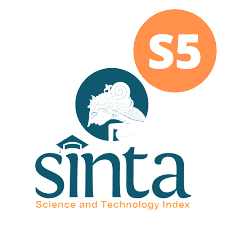PERAN GURU DALAM MENUMBUHKAN RASA NASIONALISME SISWA KELAS V SD N NAGRI KALER
DOI:
https://doi.org/10.33061/js.v6i2.8189Keywords:
teachers, students, nationalism, PKNAbstract
Educators have an important role in the continuity of the teaching and learning process. Law No. 14 of 2005 concerning Teachers and Lecturers Article 4 states that teachers play a role as actors in the learning process and have a function in improving the quality of national education for the better. The purpose of the observations made is to obtain effective roles and methods to foster a sense of nationalism in students. Qualitative research is a type of method used when research takes place. The research was conducted through observation, interview results and documentary evidence in obtaining actual data from the field. The teacher's role in instilling a sense of nationalism in students is manifested in the classroom through Internship subjects which are closely related to everyday life in the teaching and learning process. The research discusses how to instill a sense of nationalism in elementary school children through PKN learning in class, flag ceremonies and scout activities. The existence of this research is beneficial for the people of Indonesia, especially in elementary schools, because it can instill a sense of nationalism through PKN learning
References
Amalia, G., Furnamasari, Y.F., dan Dewi, D.A. (2021). Menumbuhkan Rasa Nasionalisme pada Anak SD Melalui Pembelajaran Pkn. Jurnal Pendidikan Tambusai. 5(3). p.8985-8989
Andi Ismayanti, Andi Sugianti, A. A. R. (2019). Peranan Guru Pendidikan Kewarganegaraan dalam Menumbuhkan Sikap Nasionalisme Siswa Sekolah Menengah Atas Nasional Makassar. Jurnal Etika Demokrasi, 4(2), 64–71.
Basrowi dan Suwandi. (2008). Memahami Penelitian Kualitatif. Jakarta: Rineka Cipta
Bogdan dan Taylor. (2009). Pengantar Metode Penelitian Kualitatif. Jakarta: PT. Gramedia
Djamarah, Syaiful Bahri. (1996). Strategi Pembelajaran. Jakarta : PT Rineka Cipta.
Habsy, B. A. (2017). Seni Memahami Penelitian Kuliatatif Dalam Bimbingan dan Konseling: Studi Literatur. Jurnal Konseling Andi Matappa,1(2), 90-100.
Hazimah, G. F., Astuti, N. R. W., Dewi, D. A., & Furnamasari, Y. F. 2021. Peran Guru dalam Meningkatkan Jiwa Nasionalisme Siswa Sekolah Dasar melalui Pembelajaran Pkn di Era Globalisasi. Edukatif: Jurnal Ilmu Pendidikan, 3(6): 4827–4835.
Humairah, siti Nabila. (2021). Pemikiran Politik Taufiq Kiemas tentang Gagasan Kebangsaan di Indonesia. Skripsi. Palembang: Universitas Islam Negeri Raden Fatah
Imam Azhari, Sri Utaminingsih, dan Much. Arsyad Fardani. (2022). Penanaman dan Strategi Sekolah dalam Menumbuhkan Sikap Nasionalisme di SDN 3 Padurenan. INTEGRALISTIK. 33(1)
Iskandar. (2018). Metodologi Penelitian Pendidikan dan Sosial (Kualitatif dan Kuantitatif). Jakarta: GP Press
Muzakkir dan Dani, A.U. (2020). Analisis Nilai-nilai Kebangsaan dan Kebinekaan di Madrasah Madani Alauddin Makkasar. Jurnal UIN Allauddin. Vol. IX (2)
Nursami, D.J. dan Jumardi. (2022). Peran Guru dalam Menanamkan Sikap Nasionalisme Terhadap Peserta didik Sekolah Dasar. Jurnal Basicedu. 6(5). P.8341-8348
Rama, Bahaking. (2007). Beberapa Pandangan Tentang Guru sebagai Pendidik. Lentera Pendidikan. X(1), Juni. p. 15-33
Sugiono. (2017). Metode Penelitian Kuantitatif, Kualitatif, dan R & D. Bandung: Alfabeta
Wina Sanjaya. (2006). Strategi Pembelajaran. Jakarta: Kencana Prenada Media Group
Downloads
Published
How to Cite
Issue
Section
License
Copyright (c) 2022 Jurnal Sinektik

This work is licensed under a Creative Commons Attribution-NonCommercial 4.0 International License.
Authors who publish this journal agree to the following terms:
- Authors retain copyright and grant the journal right of first publication with the work simultaneously licensed under a Creative Commons Attribution License that allows others to share the work with an acknowledgement of the work's authorship and initial publication in this journal.
- Authors can separately make additional contractual arrangements for non-exclusive distribution published by the journal (e.g., publish it in a book), with an acknowledgement of its initial publication in this journal.
- Authors are allowed and encouraged to send their work via online (e.g., in the institutional repositories or their website) after published by the journal.














